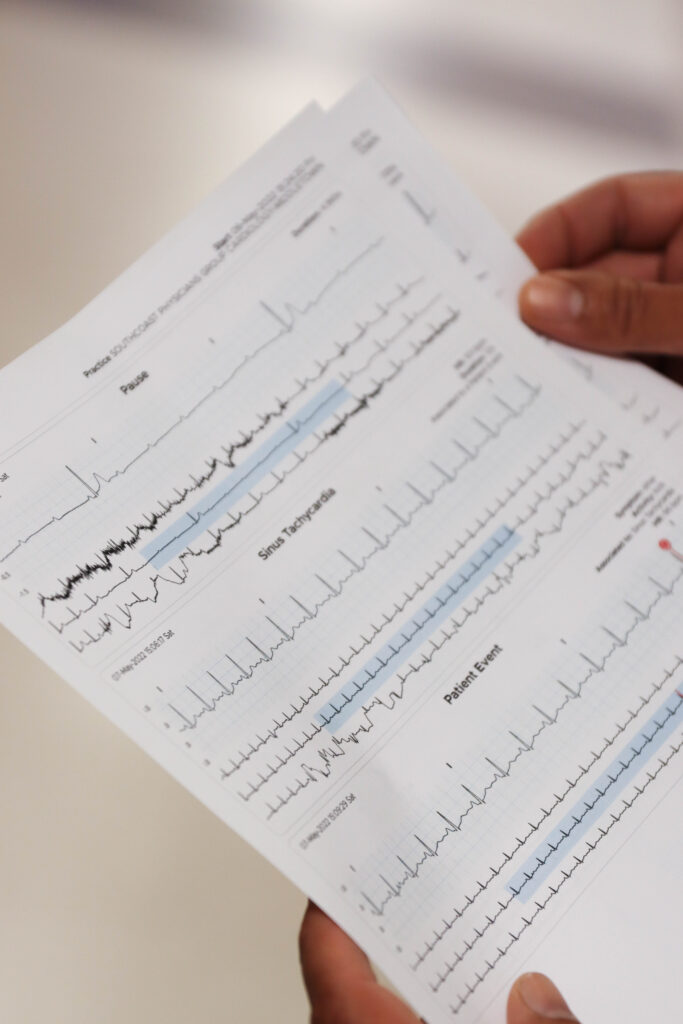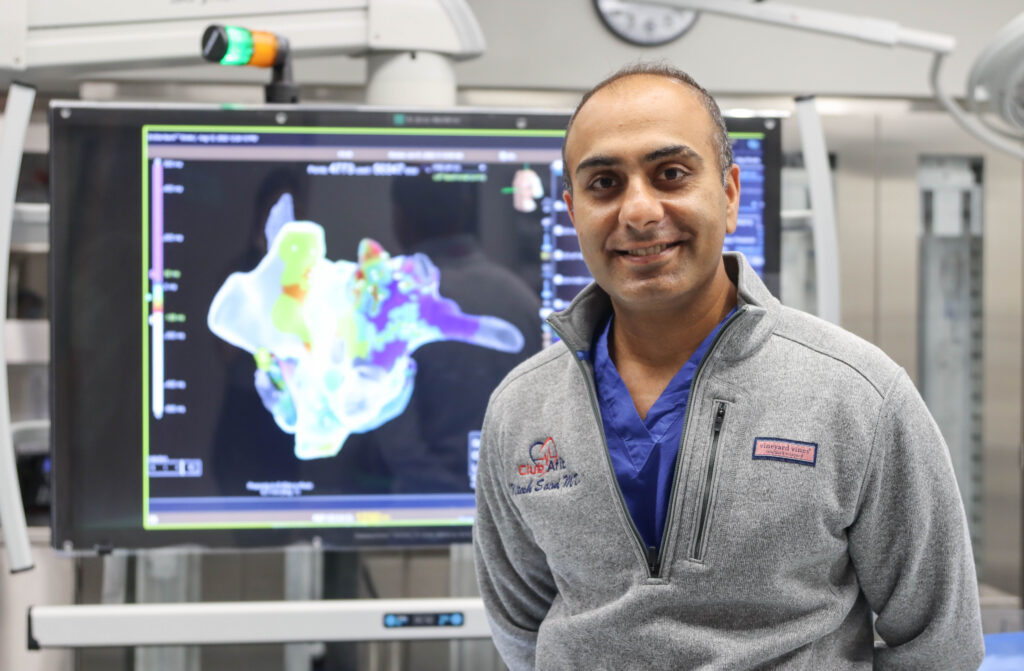Listen to Jennifer’s story:
Read Jennifer’s Full Story:
Jennifer Link felt dizzy from time to time since she was a child, but didn’t take it seriously until she fainted to her kitchen floor one morning in May and couldn’t get up.
The 32-year-old special education teacher from Middletown, RI, presented a medical mystery to doctors at Charlton Memorial Hospital that was finally resolved with an innovative procedure. Doctors believe it is the first time the procedure was performed in the United States.
After Jennifer’s episode in May, she was ordered to wear a Holter monitor. Dr. Christopher Abadi, FACC, Medical Director of Southcoast Health Echocardiography Services, soon detected a long pause while reading her cardiac activity results.
Dr. Abadi immediately called Jennifer.
“He basically told me that I needed to go to the emergency room immediately, specifically Charlton Memorial Hospital, in Fall River, and that I couldn’t drive,” she said.

Jennifer’s heart was stopping without warning for 8 to 10 seconds, caused by a condition called Heart Block.
“For most people, this can lead to catastrophic outcomes,” said Dr. Nitesh Sood, the cardiac electrophysiologist who treated Jennifer. “You can crash your car, you can fall down, hurt yourself.”
Lyme disease can cause such symptoms in young people, but Jennifer tested negative and the hospital found nothing pathologically wrong with her heart. Even with intravenous Isuprel, a strong drug that speeds up the heart, the stoppages continued. The conduction pathways that pass electrical impulses to make the heart beat were failing, something typically seen in patients in their 80s or 90s.
“We were stuck with this conundrum in a very healthy young person whose heart is not cooperating and whose cardiac wires were failing,” Dr. Sood said. “The only solution to that is a pacemaker. We do it all the time, but in a young person it completely changes their life.”
Pacemakers and their wires need to be changed at least once a decade. The procedure to remove and replace the wires is complex, and if the patient develops an infection, the pacemaker can become infected, too.
“It’s a lifetime of compromise,” Dr. Sood said. “It’s a constant reminder that something is wrong.”
Researching other options, Dr. Sood recalled a procedure called a Cardioneural Ablation invented by Dr. Tolga Aksu, in Turkey. Dr. Aksu had published two cases that were exactly like Jennifer’s. The procedure normally is performed in simpler cases with much older and sicker patients, often with atrial fibrillation — which makes the heart beat irregularly. But it could also quiet the overactive nerve endings that were causing Jennifer’s heart to stop.
From Turkey, Dr. Aksu assured Dr. Sood that he had the skills, team and technology needed to perform the procedure. Jennifer agreed, supported by her parents, sister, an RN, and brother-in-law, a physician. They understood that the surgery was not low-risk, complicated by the fact that Jennifer’s heart is small.
“He was very upfront the whole time,” Jennifer said. “He always wanted all of my family members present, just so that there were more people involved help make the decision.”
Dr. Sood also met with Southcoast’s clinical and administrative leadership. “I’ve got to give credit to all my seniors who came together and said we have to do the right thing for the patient,” Dr. Sood said. “It’s a testament to the entire institution coming together and going to bat for a patient.”

Dr. Sood also credits his team, which eagerly took on the challenge of a new procedure. The surgery took almost five hours, with Dr. Sood and his team mapping the nerve endings and inactivating them.
“We spent almost five hours in her inner heart,” he said. “It was made very difficult because most people we operate on are older, have a much bigger heart so there’s a lot more space to maneuver and move.”
Within two days, Jennifer was off her medications. An implanted heart monitor relays her cardiac activity to her care team and so far, her heart hasn’t stopped once.
Today, Jennifer is back at work as lead teacher of the Life Skills program at Tiverton High School and part-time server at the Red Parrot Restaurant in Newport, RI. She is active with her dogs and DIY home improvement projects. She still hesitates when doing something that once brought on dizziness, but now one year since the procedure, she lives symptom-free.
“From the moment I got to Charlton Memorial, I could tell the cardiac department is top tier,” she said. “I’m thankful to the whole team, every nurse, every doctor, even down to the food delivery people. Everyone was so sweet, compassionate and humane.”
Learn More about the Southcoast Health Heart & Vascular at Charlton Memorial here.
